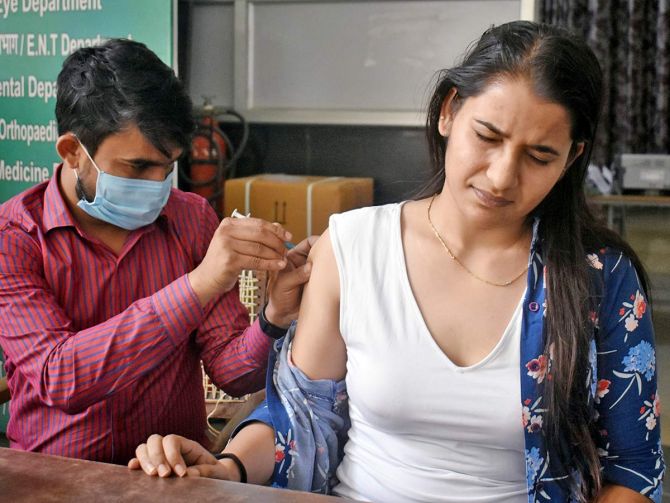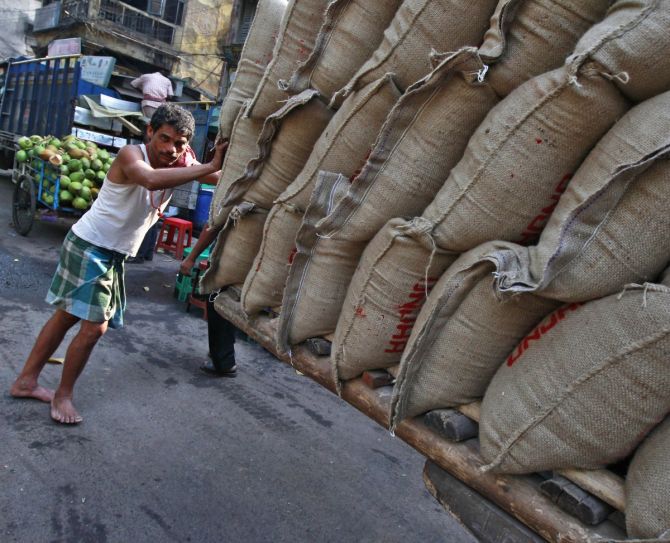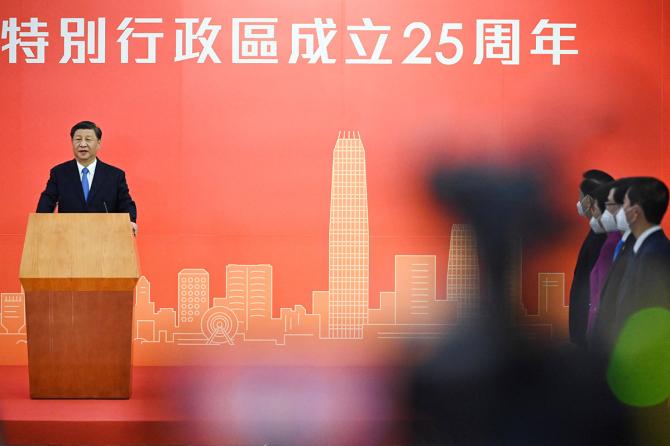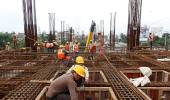'The China opportunity, the digital opportunity and the end of geography opportunity are the three pieces of luck India got due to Covid.'

In 2014, N D Modi came to power promising 250 million jobs in the next 10 years. But job creation continues to be a hard task for his government.
If the unemployment rate was 6 percent in 2017, it rose to 9.3 percent in 2021 and was still 8.2 percent in January-March 2022.
Should the Modi government be worried?
Manish Sabharwal, vice chairman, TeamLease Services, does not feel so.
"India's problem is not jobs, but getting the right wages. Everybody can get a job, but the problem is not everybody can get the job or the income they want," Sabharwal tells Rediff.com's Shobha Warrier in the first of a two-part interview:
As per the CMIE (Centre for Monitoring Indian Economy) survey, unemployment in the age group of 17.5 and 23 has risen from 23 percent in 2017 to over 50 percent since 2020.
The overall unemployment rate is around 7.8 percent.
How worrying is the situation?
Unemployment has stayed between 6 and 9 percent since Independence.
Unemployment is a poor or wrong metric to indicate the strength or weakness of the labour market in India.
Globally also, this metric is challenged during this recession as output comes down, but jobs that don't pay much, don't. The better indicator of the labour market is poverty.
The poor cannot remain unemployed, so they are either self-employed or they work in agriculture or work in the informal sector.
India's problem is not jobs, but getting the right wages.
Everybody can get a job, but the problem is, not everybody can get the job or the income they want.
So, this unemployment obsession will take you in the wrong direction.

IMAGE: Manish Sabharwal, VC, TeamLease Services/
If you believe the problem is jobs, you can throw money from helicopters, mandate a three-day work week, or take away the shovels and give them spoons.
But if you realise the problem is wages, you will do formalisation, urbanisation, industrialisation, financialisaton and human capital.
There are five problems due to which wages are low at the level of states.
For example, I live in Karnataka and my parents live in UP. Both the states have the same GDP, but Karnataka does it with one-fourth the number of people.
If everybody lived in Bangalore, our GDP will be more than China!
Like the difference between the states and the cities, there is a difference between sectors too.
Only 0.8 percent of the labour force is in the IT sector, but it contributes to 8 percent of the GDP.

On the other hand, agriculture has 42 percent of the labour force, but contributes 15 percent of the GDP.
It means some sectors are more productive than others. Also, some firms are more productive than others.
There is a 24 times difference in the productivity of the largest and the smallest manufacturing firms.
So, we should be talking about productivity and not unemployment.
It depends on which state you are in, which city you are in, which sector you are in and which firm you are in.
The same electrician when he moves from Patna to Bangalore gets four times more salary, and when he moves from Bangalore to the US, he gets 20 times the salary.
There is no such thing as poor people; there are people in poor places.
So, what's the solution to the problem?
You have to formalise India .You have to urbanise India. You have to industrialise India. You have to financialise India. You have to skill India.
There is no short-term solution.
The fiscal and monetary policies are not potent for job creation as people think. Monetary policy is not a structural transformation.
And there are no short-term solutions to India's labour market.
As you said, the unemployment rate has been between 6 and 9 percent from the time of Independence. So, the problem has been there for decades...
But poverty has come down from 60 percent to 40 percent to 24 percent. That is a better indicator of the labour market.
A child born in India today has chance of making more money than his parents born in 1990 or 1980 or 1970.
Let's stop these doom stories.
I would say Covid has been a medical tragedy, but economically good for India in a few ways.
Good for India?
Yes. Digitisation for example. 5 million IT employment is going to go up to 10 million.
Second is, working from home. It is not just working from home; it is work from anywhere.
So, people do not have to move to the US anymore to provide services.
H1B visas will become less important over the next few years as India perfects our model of the talent cloud.

Obviously, India has many challenges. But Xi Jinping has made China very unattractive in the last 3 years, so it is creating opportunities for India.
I hope he gets a third term! That will be very good for India.
The China opportunity, the digital opportunity and the end of geography opportunity or the talent cloud opportunity are the three pieces of luck India got due to Covid.
I don't agree with the CMIE's view that the labour markets are worse off today than two or twenty years ago.
But there are people without jobs...
I would say, they are underemployed. And underemployment is a different problem than unemployment.
Under employment is when you don't get the wages you deserve, and unemployment is when you can't find a job.
The solutions are also different.
- Part 2: 'India is getting better'
Feature Presentation: Rajesh Alva/Rediff.com










